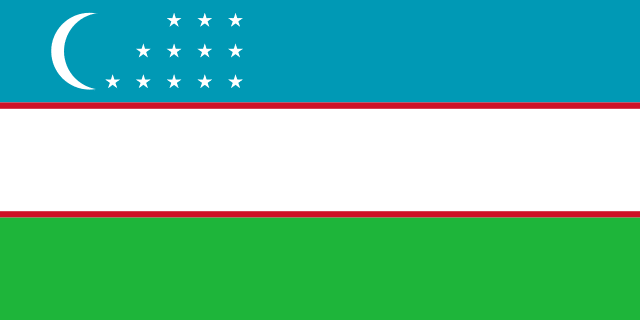In the subsequent period, the reforms rapidly carried out in our country in all spheres began to show their positive results. And the basis of the far-sighted policy pursued by our esteemed President is, first of all, the creation of a new Uzbekistan, the inclusion of our country among the most developed advanced states, strengthening the authority of our country in the international arena, as well as, above all, improving the welfare of our people and creating all the necessary conditions for a decent life.
It is for this purpose that the head of state regularly visits all regions of our country, holds personal meetings with the population, even gets to the apartments of people living in the most remote areas, listens to their pain and takes effective measures to solve their problems. During these meetings, our people express valuable and useful thoughts in various areas.
In addition, as a result of the populist policy, the principle of “Kars comes out of two hands” is ensured, simultaneously with openness and transparency. This, in turn, proves that our president relies on our creative people to continue the noble work of developing the country and achieving great success.
It is noteworthy that, taking into account the proposals and comments made directly by representatives of various segments of the population, as well as with the aim of their implementation, in September 2023, a historical document was adopted that is extremely important and programmatic for the development of our country – the strategy “Uzbekistan – 2030″.
This strategy reflects 100 important goals in 5 priority areas, thanks to which Uzbekistan is among the most developed advanced states, increases the well-being of the people, improves economic and social conditions, creates a system of education, medicine and social protection that fully meets the needs of the people and international standards, promotes a sense of harmony with life and the state. Specific goals and objectives have been identified.
In all directions prescribed in the strategy, priority was given to the interests of the population, that is, the people and the country. In particular, the first chapter of the strategy was devoted to the direction “Creating decent conditions for each person to realize their potential.” It includes 135 practical activities within the framework of 44 goals (Goals 1-44) in this area.
At the same time, it is necessary to increase the level of coverage of youth with higher education to at least 50 percent, conduct international accreditation of educational programs of 30 higher educational institutions, introduce a “two-degree system” based on at least 50 joint educational programs in cooperation with foreign universities included in the “top 500”, combine 10 higher educational institutions with the most prestigious universities in the world. Achieving inclusion in the rating of higher educational institutions “top 1000”, there are such points as expanding the coverage of higher education, improving the quality of training specialists with higher education by increasing the effectiveness of scientific research in higher education institutions and bringing scientific potential to 70%, a specific task and indicators.
Also, one of the important innovations of the strategy is the improvement of the organizational and managerial activities of higher educational institutions, strengthening their material and technical support. At the same time, to achieve this goal by 2030, tasks have been set to transform 5 higher educational institutions into national research universities, build additional educational buildings for 120 thousand places and student dormitories for 150 thousand places, replenish libraries with at least 1 million units of modern literature and fully digitize the library stock. it shows that he is under the close attention of his supervisor.
In addition, in recent years, the sphere of good deeds aimed at strengthening the health of the population on the principle of ”medical reform for human dignity” has been expanding in our country. As a logical continuation, the strategy also pays special attention to the health care system, defining goals and objectives, measures and practical actions that should be implemented in this direction. For example, it was noted that it is necessary to bring primary medical services even closer to the population by fully covering 350 thousand diabetic patients and 1.5 million. cardiovascular diseases, achieving the solution of 70% of the appeals of the population in need of medical care, in the most primary link, full coverage of patients with hemodialysis sites in the republic.
At the same time, in order to form proper nutrition and a healthy lifestyle among the population, reducing the proportion of the population consuming salt above the norm to 32%, the population without sufficient physical activity to 22%, the overweight and obese adult population to 32% and 23%, respectively, among children under 5 years of stunted growth, an average 2-fold decrease in the proportion of underweight and overweight people, as well as the content of trans fats in educational and medical institutions, it would not be an exaggeration to say that tasks such as import, manufacture, The 100% restriction on the sale of products with high salt and sugar content proves that the health of our population is always under the control of our president and government.
These initiatives will make it possible to increase the effectiveness and feel the results of reforms faster by systematizing the reforms carried out by the state in the social sphere, in particular in higher education and healthcare, and establishing clear indicators of development.
Undoubtedly, the goals and objectives, indicators and milestones outlined in the Uzbekistan 2030 strategy will ensure the well–being of our people and serve to further improve their lives, as well as have an effective and positive impact on the future of our country. And this, in turn, creates the ground for strengthening the positive image of Uzbekistan in the international arena as a more reliable partner.
Botir Daminov,
Rector of Tashkent Pediatric Medical Institute,
Doctor of Medical Sciences, Professor



